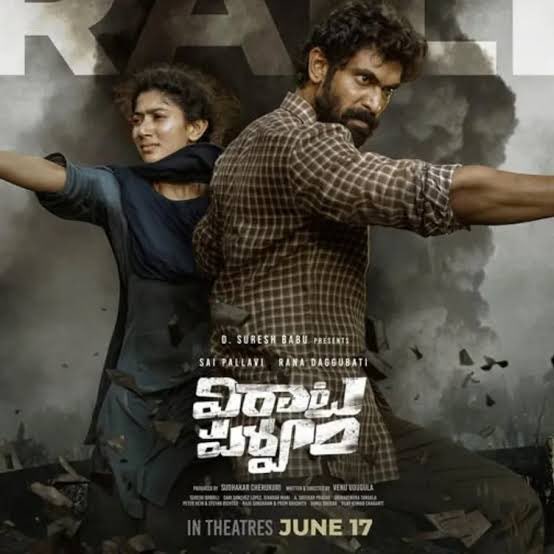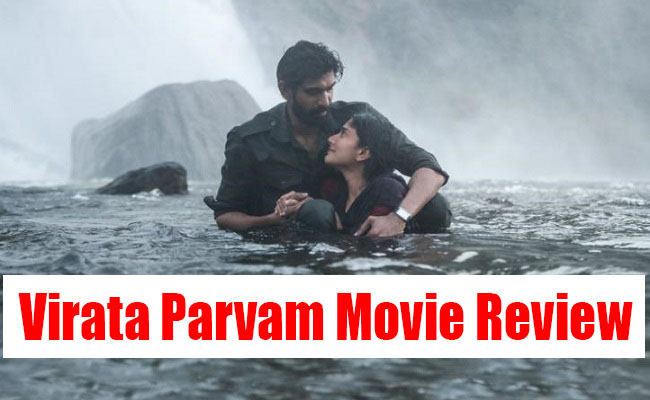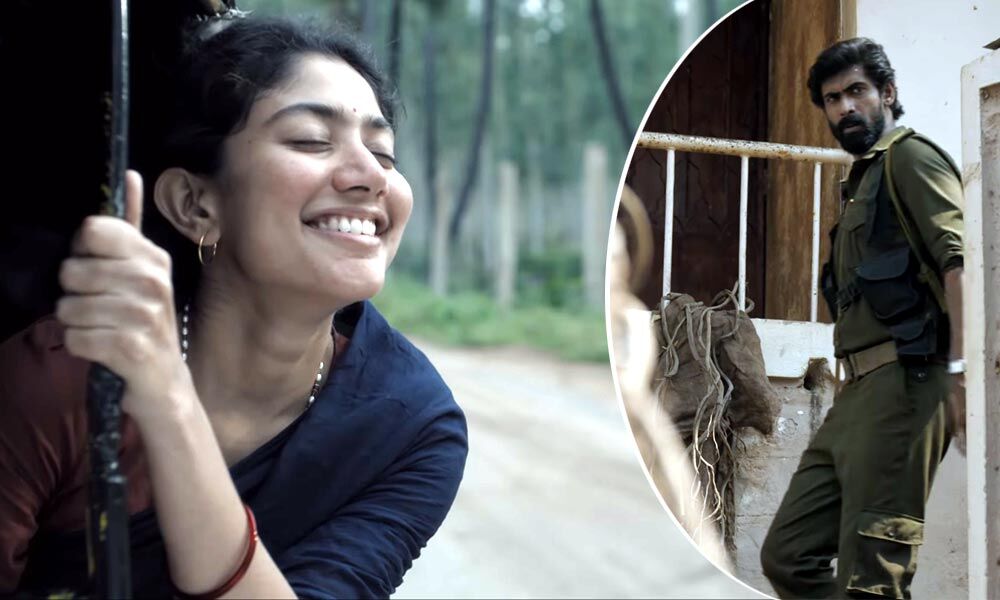Virata Parvam Movie Review : Right from the bat, the audience member who watched ‘Virata Parvam’ is full of embraced wisdom and ideas. “There are only two meaningful days in life: the day we were born and the day we found out why we were born,” Vennela (Sai Pallavi) told her father. Quote used to be the most powerful E-mail in the early days of the Internet. Then there are the revolutionary poems from Maoist leader Ravanna (Rana Daggubati), whose lines are full of explosive integrity but have lost their power due to the endless use of borrowed language in both traditional and pop culture.

Director Venu Udugula has actually reserved the heavy parts of the final game. There is something sad about the climax that touches the heart. But even this extension would have been often sad if Ravanna’s character had not been written down. He has to say something with a scream above his lungs. We find out that he is a Maoist. But why make Maoism all about burning poems, Laal Salaam-ing, and loud announcements / sentences?

The story is about Vennela. Thus, ‘Virata Parvam’ is a story that focuses on the heroes who surrounded Naxal’s wars and the recession of the world. Vennela falls in love with Ravanna after reading her secretly banned books. He begins to think of life with him – the life of a war-torn forest.
In Vennela, Ravanna is a mythical figure who deserves the form of Miraba worship offered to King Krishna. She is a compulsive love lover who takes the Naxalism of love through a change of circumstances. ‘Virata Parvam’ would have been an apologetic film had the conflict between Maoists and the police been the ONLY unthinkable segment. Happily, even the recording of Vennela’s true love for Ravanna is cut off from poetry. Sai Pallavi’s brilliant performance is the only thing that keeps the love story from appearing complicated and simple.
Priyanka Chopra and Vidya Balan get ‘dark and sensuous’ in black outfits, you will love it
It’s the noise of Vennela’s false love with a man who doesn’t know her existence. This man should have an amazing presence or not be seen on screen. The theater of this idea should have been written differently. Vennela’s evolution from a normal girl to a rare romantic girl should have seemed plausible. But it ends up looking simple and basic. Even Vennela’s will and ability to fight in deadly situations is unsatisfactory.
The collision between radicals and cardboard police has no visibility. Themes such as child custody violence, police brutality, and constant surveillance of suspects / citizens are repeated advertisements. In an unintentional humorous scene, a high-ranking officer (played by Banerjee) introduces Mahabharata’s Virata Parvam to his superior during a rally aimed at deliberating to plot against the Maoist. Guess why he did that? Telling him about the need to register a spy. The boss never went to police training school.

The film has this tendency to seem hypocritical about the vocabulary about or near the Maoists. Words like ‘state phobia’ are used for the excitement of a student reading radicals for the first time. But these are small mistakes compared to the way Ravanna, at one time, is made to look like she needs life lessons from Vennela. Doesn’t Vennela love him because he is perfect?
The character of Nandita Das adds something to the plot but the character who is the mother of Zarina Wahab will be greatly missed for the exciting situation she and her son have. Naveen Chandra and Priyamani are fine but it is Sai Chand who steals the program among the supporting artists. The film has excellent cinematography. BGM is good enough.